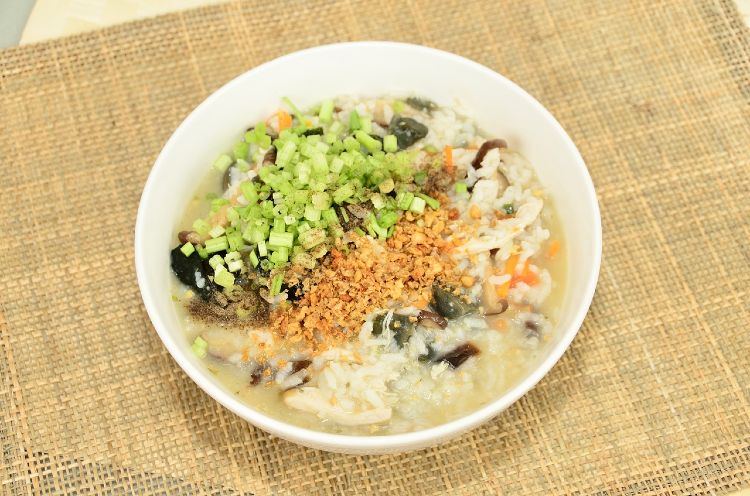Melograno Alimentari
I met Dino Joannides on a bright and mild winter afternoon at Melograno Alimentari in Clarendon Road in London’s Kensington. Sunlight filters through the glass window front and its red canopy illuminates the warm tones of the breads and cakes in the window. The word “melograno” is Italian for pomegranate tree, the fruit of which has a thick skin that holds an abundance of jewel like seeds. “Alimentari” roughly translates to a shop that sells food. It was named by one of the partners’ mother-in-law, who chose the tree for its symbolism of abundance, generosity and prosperity.
Melograno Alimentari’s story starts at a dinner party meal that Dino prepared for a friend from university, Robin Houldsworth and his Italian wife a couple of years ago. Dino and Robin are now business partners, combining entrepreneurial skills and business backgrounds in the financial sector in the City, with their mutual appreciation of Italian food. The food Dino served at the dinner was simple but consisted of very good ingredients. Robin asked him where he had sourced the produce and Dino casually told him that he had shopped at no less than fourteen different places to put the dinner together.
Although there are many specialist food purveyors in London, the quality and range of items that they carry is fragmented. For the discerning foodie shopper this means having to visit each specialist in turn. Melograno Alimentari was born from a desire to bring the best Italian ingredients under one roof.
The venture was financed by Robin with Dino assuming the responsibility for setting up, managing and staffing as well as sourcing and curating the foods and wine. The growing numbers of staff in the Alimentari team have brought new ideas, artisans and producers from which to source, but Dino still remains deeply involved in the buying processs, if only for his abiding passion for good quality food and the people who produce it. Dino’s substantial food portfolio and network of ‘gastronomic friends’ in every corner of Italy are an excellent resource from which to find quality brands.
The staff that work in the shop have been selected as carefully as the food, the focus being on a passion for food, cooking and gastronomy. They include the former head of Slow Food in the United Kingdom, who is also a key player in the Oxford Symposium on Food and Cookery and The Guild of Food Writers, as well as graduates from the Anthropology of Food programme at the School of Oriental and African Studies and others with similar qualifications gained in Milan and Parma.
Our conversation flows steadily, interrupted only when I pause to sample some of the things that we are talking about. I am introduced to Culatello di ZibelloDOP( DOP stands for the Italian Denominazione di Origine Protetta, the legal authentication of origin), a refined variety of prosciutto aged for 28+ months, traditionally produced in the humid and foggy microclimate along the river Po. It is so finely sliced it is translucent. It glistens lightly, tastes buttery and melts in the mouth. A traditional Tuscan salame, finocchiona, comes from a small Italian village butchery. It is fragrant with wild fennel and stained slightly yellow with pollen. The aniseed flavour of the wild fennel is fresh against the fatty elements of the pork.
Dino is passionate about the stories of the artisan producers. Farming is the bloodline of the Spigaroli family, the artisan purveyors of the culatello and other salumi as well as the Parmiggiano he stocks. The culatello and Parmiggiano are cured in the cellars of the Antica Corte Pallavicina, which were built in 1320, and are subject to rigorous procedures. I was fascinated to learn that the team working with the meat must wash their hands in white wine before doing so. Such is the quality of the Spigaroli culatello that Michelin starred Chef Alain Ducasse and the Prince of Wales both have a dedicated chamber in the cellars of the Antica Corte Pallavicina.
I am initiated into the world of balsamic vinegar as an array of glass bottles are brought before me. San Giacomo is from the Reggio Emilia region and produces the most spectacular aged Balsamico Tradizionale. It has a concentrated sweetness of black grapes, a woody aroma, and is dense enough for it to settle on a dish in a perfect round.
Dino believes that good quality ingredients, in small quantity, are what lead to a perfect meal. The Alimentari carries the full range of San Giacomo balsamic vinegars. I try the balsamic with irregular pieces of the Parmiggiano: it has notes of butter and savoury caramel but with a tiny drop of balsamic it is nothing short of perfection, a marriage of warm and fruity flavours.
The meticulousness and commitment to the provenance of the food come through in our discussion about the recent news story of extra virgin olive oil that has been adulterated with lower priced and lower grade olive oils. Most of the Alimentari’s olive oils are sourced from its wine producers, who not only have their own olive groves but are closely audited artisan producers, which makes it almost impossible to doubt the quality of the oil they sell. There is a core selection of wines stocked and Dino has brought in a number of Southern Italian wines, which are well known in Western Europe. He speaks highly of Passito di Pantelleria DOC(a Moscato dessert wine) whose reputation speaks for itself, as it was offered him by a sommelier at the conclusion of a meal at a three star Michelin restaurant in Paris.
There is a good selection of fresh staples and on the day that I visited there were balls of burrata, a luxurious cheese from the Puglia region. The top of the range dry pasta is from Pastificio dei Campi in Gragnano, a protected geographic indication for its unique geographical and natural elements, which complement production of the best pasta.
For those who would like to have a morning coffee or a quick lunch there is a slim counter with bar stools for perching. This is where I sat to eat my panino, thin, long slices of Princi’s sourdough hold together slim slices of fontina and provolone cheeses. The condiments that transform this are white truffle oil and a light lacquer of mostarda, a conserve of warming mustard oil combined with candied fruits like pear and apple. The heat of the grill pulls the natural oils from the cheese and mostarda, infusing the sourdough. This is a panino of layers of flavours – nutty, buttery and fruity.
I ask Dino about the role of social media, especially Twitter, in drawing interest and customers to the Alimentari shop. To him, Twitter merely amplifies the voice of his brand, as an egalitarian version of dedicated food forums like eGullet, and reflects changing perceptions and attitudes toward food. Since the shop’s opening in July 2011, there has been a steady build up in clientele, much of it established through personal relationships and networks. The Alimentari is very popular with locals and neighbouring areas in London, but people living outside London also visit regularly in the knowledge that it is a one-stop centre of excellence. Recent years have seen a food renaissance and it is the curiosity of the food lover that leads people to find and procure the best of food. Melograno Alimentari caters to this growing love, understanding and demand for quality Italian foods in London, and prides itself on being a local, community hub as well as foodie destination for those further afield.
Further Information
Melograno Alimentari website: www.melograno.co.uk
Follow the Melograno team on Twitter: @MelogranoDeli
Address: 4 Clarendon Road, Kensington, London W11 3AA
Author Details
Mehrunnisa Yusuf: www.comeconella.blogspot.com
Follow Mehrunnisa on Twitter: @comeconella
Photographer Details
Paul Winch-Furness: www.paulwf.co.uk/
Follow Paul on Twitter: @paulwf


